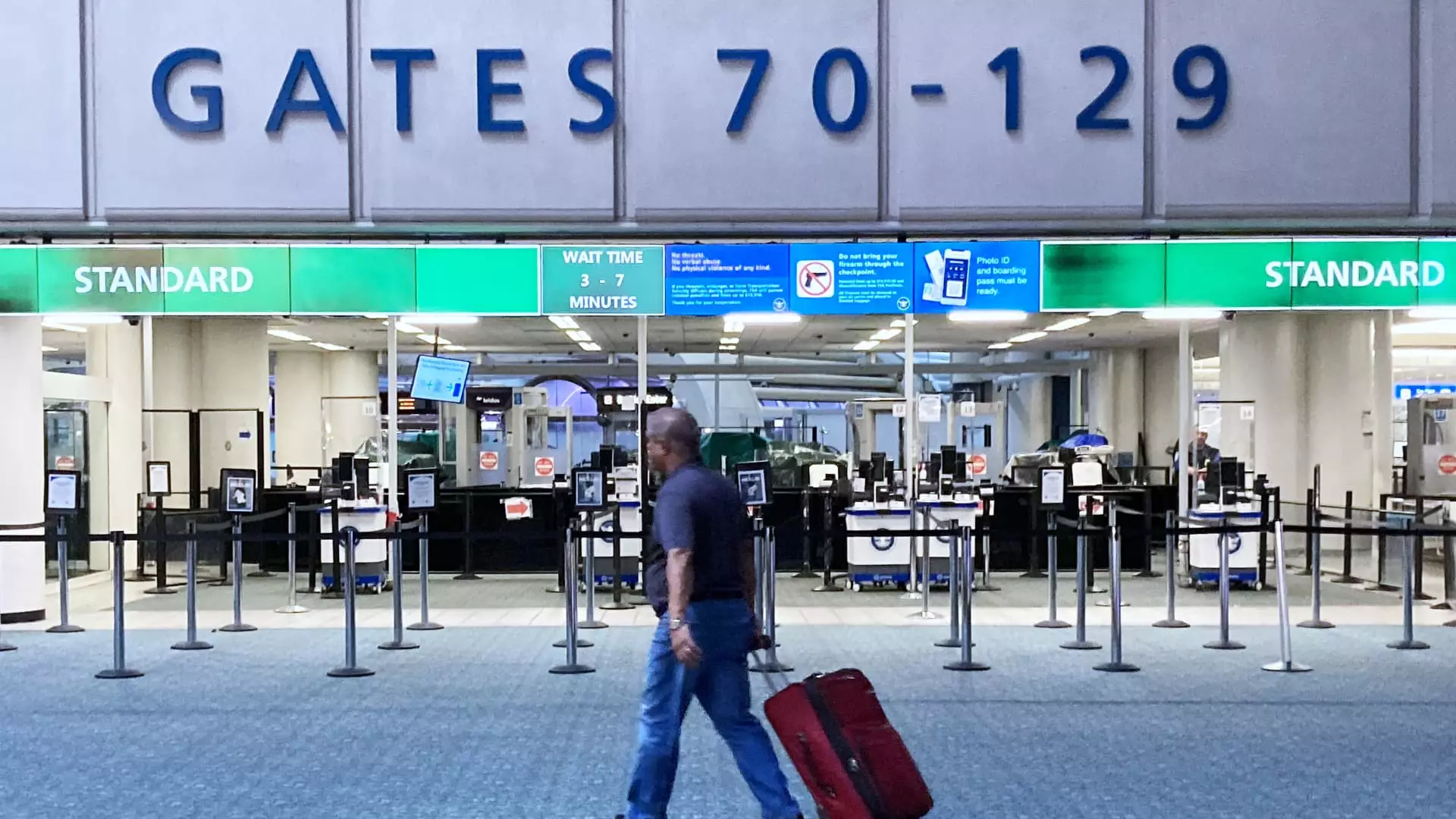As the festive travel season approaches, the specter of a government shutdown looms ominously over holiday plans across the United States. Lawmakers have reached a stalemate, rejecting a crucial short-term funding bill that was endorsed by President-elect Donald Trump. If an agreement is not forged by 12:01 a.m. ET on Saturday, a shutdown will ensue, potentially placing hundreds of thousands of government employees in a precarious position as they may be furloughed without pay. The timing of this political impasse raises serious concerns regarding the impact on travelers as airports are set to experience an influx of holiday traffic.
Despite the threat of a shutdown, commercial airlines remain steadfast in their commitment to operate as scheduled this holiday season. In fact, airlines are bracing for what could be the busiest year-end holiday travel period on record. The Transportation Security Administration (TSA) has projected that it will screen over 40 million people throughout the holiday travel window, lasting until January 2. Notably, United Airlines anticipates an increase of roughly 12% in passenger volume compared to the previous year, with approximately 9.9 million travelers expected to fly between December 19 and January 6.
In the event of a government shutdown, essential personnel such as over 14,000 air traffic controllers and around 60,000 TSA agents will continue to work, albeit without compensation. David Pekoske, administrator of the TSA, took to social media to confirm that officers will work “without pay in the event of a shutdown.” This situation underscores the reliance on dedicated TSA employees who ensure passenger security, yet it also presents a significant concern for travelers. With high volumes anticipated, longer wait times at security checks could become a reality, as highlighted in a recent statement by the TSA.
The last government shutdown, which persisted for an unprecedented 35 days from late 2018 through early 2019, serves as a cautionary tale. During that period, the air traffic control system faced considerable strain due to call-outs from some controllers, leading to widespread delays and congestion. Although Congress was able to broker a deal to end the shutdown, the repercussions of that funding lapse affected air travel for months afterward. The possibility of history repeating itself raises alarm bells for airline leaders who are concerned about the capacity to manage holiday congestion effectively.
Amid these challenges, the Federal Aviation Administration (FAA) is once again facing a leadership vacuum, as the current administrator Mike Whitaker announced plans to resign just as the new administration prepares to take over. Delta Air Lines CEO Ed Bastian recently emphasized the necessity for the incoming FAA administrator to prioritize modernizing air traffic control systems and addressing recruitment challenges for air traffic controllers. The intersection of governmental stability and efficient air transportation is critical, particularly as the industry gears up for record-high passenger loads.
While travelers may hope for a seamless holiday experience, the combination of political deadlocks and system capacities suggests that vigilance is needed. As lawmakers grapple with funding issues, its effects could ripple through the air travel industry, highlighting an urgent need for strategic solutions moving forward.

